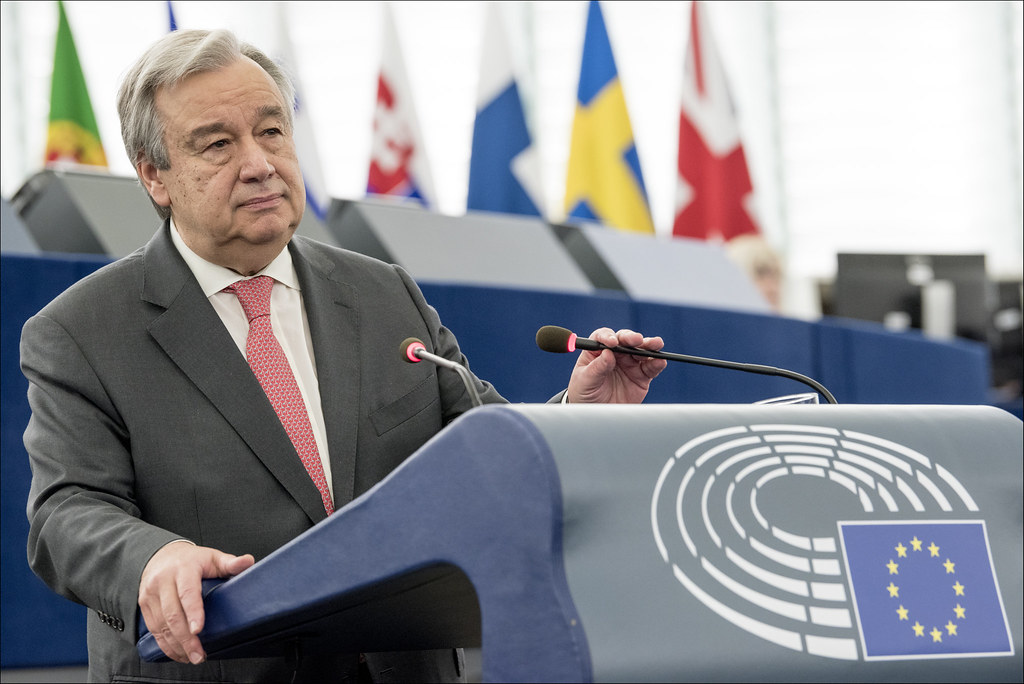Table Of Contents
In the rapidly evolving landscape of technology, artificial intelligence (AI) stands out as a transformative force poised to redefine our global approach to sustainable development. António Guterres, the United Nations Secretary-General, has underscored AI’s potential to accelerate the achievement of the United Nations’ Sustainable Development Goals (SDGs). By harnessing AI’s capabilities, the international community could address critical global challenges, ranging from education and healthcare to climate action. As Guterres envisions a future where AI acts as a catalyst for change, the call for global cooperation and ethical governance becomes ever more pressing.
AI as a Tool for Development
Bridging Divides
António Guterres has consistently emphasized the need for AI to bridge social, digital, and economic divides, rather than exacerbate them. This vision aligns with the broader objective of ensuring that AI technologies benefit all communities, particularly those in developing nations where access to technology remains limited. By promoting global collaboration, Guterres aims to create an inclusive digital environment that empowers marginalized groups and fosters equitable growth. Recent initiatives in AI development have shown promising results in improving access to essential services, demonstrating the potential for AI to act as a great equalizer in society.
Potential for Sustainable Development Goals (SDGs)
AI’s potential to “turbocharge” efforts toward achieving the SDGs is an exciting prospect. In sectors such as healthcare, AI-driven innovations are revolutionizing diagnostics and treatment, offering personalized medical solutions and improving patient outcomes. Similarly, in education, AI-powered platforms provide tailored learning experiences that cater to individual needs, enhancing educational accessibility and quality. In tackling climate action, AI is instrumental in optimizing energy use, predicting climate patterns, and managing natural resources sustainably. Guterres stresses that realizing this potential hinges on making AI accessible and equitable for all.
Risks and Governance
Concerns Over Misuse
While recognizing the immense benefits AI can offer, António Guterres has also warned of its potential misuse. AI technologies can be weaponized, leading to threats such as cyberattacks, disinformation campaigns, and the creation of deepfakes, which pose risks to global peace and security. The potential for AI systems to malfunction or be intentionally exploited underscores the need for robust governance frameworks that prioritize safety and ethical standards. Addressing these concerns requires a concerted effort to establish guidelines that prevent misuse while fostering innovation.
Need for Global Governance
Guterres has advocated for a universal approach to AI governance, proposing the establishment of a new UN entity to oversee AI development. This entity would be responsible for ensuring that AI aligns with international norms and human rights standards, providing expertise and support to member states. By coordinating AI governance on a global scale, the UN aims to prevent inequalities from deepening and ensure that the benefits and risks of AI are distributed fairly across all populations. This initiative reflects a growing recognition of the need for international cooperation in managing AI technologies responsibly.
Upcoming Initiatives
High-Level Meeting on AI
In response to the pressing need for global governance, António Guterres has announced plans for a high-level meeting to discuss options for regulating AI. This meeting aims to facilitate negotiations on a legally binding instrument to prohibit lethal autonomous weapons systems by 2026. The initiative underscores the urgency of establishing a comprehensive international framework that addresses the ethical and security concerns surrounding AI. By fostering dialogue among nations, the UN seeks to harmonize standards and promote responsible AI development.
AI Advisory Body and Global Digital Compact
To gather global expertise on AI governance, Guterres has established an AI Advisory Body tasked with providing recommendations for international cooperation and risk management. This body will report its findings by the end of 2023, offering valuable insights into the opportunities and challenges posed by AI. Additionally, the upcoming Summit of the Future in September 2024 will feature discussions on a Global Digital Compact. This compact aims to lay the foundations for effective global governance of AI, ensuring its deployment aligns with sustainable development objectives.
António Guterres’ vision for AI as a catalyst for sustainable development presents an exciting opportunity to address some of the world’s most pressing challenges. By leveraging AI’s transformative potential, we can advance the United Nations’ Sustainable Development Goals, provided that its implementation is guided by principles of equity, safety, and global cooperation. As the international community navigates the complexities of AI governance, Guterres’ call for responsible development and ethical standards serves as a crucial roadmap for ensuring that AI fulfills its promise as a force for good. By embracing this vision, we can harness AI’s capabilities to create a more sustainable, inclusive, and equitable world.
Source: UN


